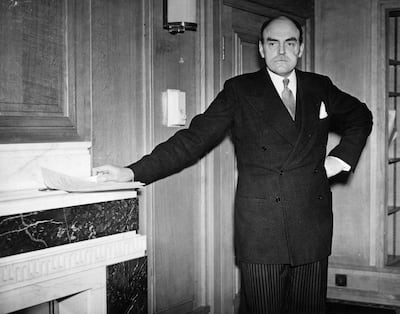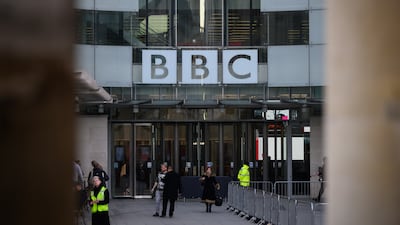The BBC hasn't always been popular. In its infancy it was considered remote and aloof, like Lord Reith its creator. The Second World War changed that.
The BBC became a unifying voice, trusted and adored by Britons in fear of invasion and bombing. That popularity extended into Nazi occupied Europe. Here the BBC offered truth, a great disinfectant. Its reputation made it an excellent tool of British soft power. Here was an institution that projected British ideals of liberty, democracy and justice. Government liked it.
And, because the see-saw of British politics means oppositions expect to become governments, both major British political parties liked it too. Labour and Conservative Prime Ministers criticised the national broadcaster, but they did not harm it. For decades they renewed its Royal Charter and agreed to increases in the licence fee that allowed the BBC to add new radio and TV channels and later websites. Inside BBC News, journalists learnt that “as long as we are criticised by both sides, we must be doing something right”. Reporting for the BBC was an honour.
When Margaret Thatcher came to power in 1979, some in the BBC trembled. The Iron Lady's husband was no friend. Denis Thatcher believed the BBC was a “nest of pinkoes”, hostile to private enterprise and Conservative values. But Margaret Thatcher did the BBC no serious harm. None of her Conservative successors bowed to pressure from party loyalists who, as the 21st century began, increasingly viewed the corporation as a cultural enemy.
Brexit changed that. Too many in the BBC assumed Britain would vote to remain in the EU. The corporation's reporting of the referendum campaign was laden with assumptions that leaving would be a colossal mistake. Conservative Brexiteers had always disliked Auntie Beeb, now they hated her.

When Boris Johnson became Prime Minister, Downing Street ordered ministers not to appear on BBC radio's flagship Today programme. Senior Conservatives complained that the BBC only spoke to “a pro remain metropolitan bubble in Islington”. A BBC editor accused the Government of “putting a foot on the BBC's windpipe”. It was, perhaps, testament to the power of tradition that two years elapsed before Mr Johnson's government struck back.
On Sunday, Nadine Dorries, Secretary of State for Media, tweeted her plan to abolish the licence fee, the universal flat rate payment that has kept the BBC better funded than any of its domestic rivals. The following day Mrs Dorries appeared in the House of Commons to confirm that the £159 charge would not rise with inflation in the next two years. That breached a previous agreement between ministers and the BBC. And worse news followed. Mrs Dorries promised that when the BBC's charter expires in 2027, the licence fee will not be renewed. Conservatives are determined to find a better way to fund a smaller BBC.
The licence fee currently gives the corporation £3.7 billion per year to make TV, radio, the BBC website, podcasts, the iPlayer and apps. Payable by every television owner, except the poorest British pensioners, it is charged at a flat rate irrespective of income. Simply accepted for decades, it has recently become the target of furious criticism by millions of Britons who now get entertainment from streaming services and their news from commercial broadcasters or newspapers. Unfortunately, it is hard to replace.
Mrs Dorries insists she does not want to kill the BBC, simply to reshape it to compete in a changing media market. But how? A purely commercial solution is unlikely. The BBC's rivals do not want to compete with it for advertising revenue. Subscription funding is technically impossible without expensive changes to Britain's transmission system. And subscription would reduce the range of BBC output. It would not pay for World Service radio and other services that the Foreign Office and Ministry of Defence consider powerful tools of influence.
One senior Conservative, John Whittingdale, a former media minister, has suggested direct state funding. But funding by the British public means the BBC is owned by the people. Funding by the state would make it a state broadcaster. The reputational consequences would undermine its diplomatic value. Some of the BBC's friends suggest a universal levy on broadband connections. This would certainly raise money, but it might soon become as unpopular as the licence fee.
Of course, Boris Johnson and Nadine Dorries may not be in office in 2027. The former may not be in power next week. So, this government may never have to deal a decisive blow against a national institution that rivals the National Health Service as a symbol of British exceptionalism. Mr Johnson's government has issued an unprecedented threat against the BBC. Delivering on its menaces will be immeasurably harder.


